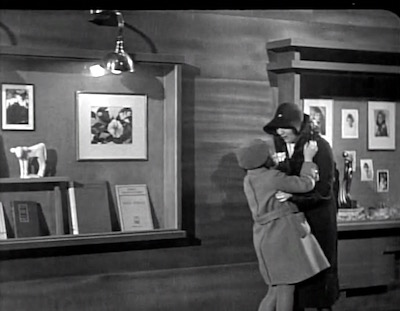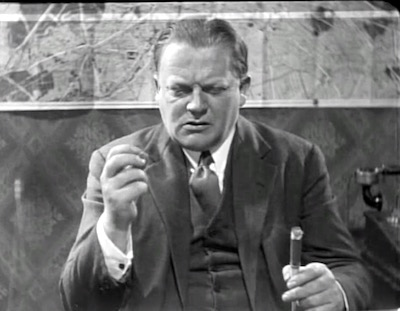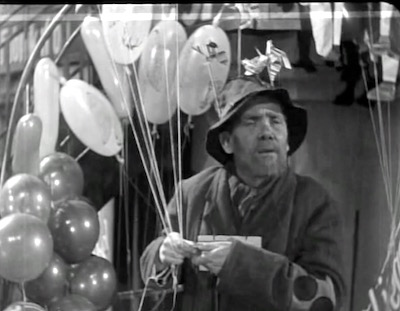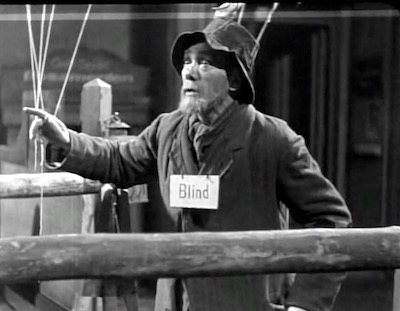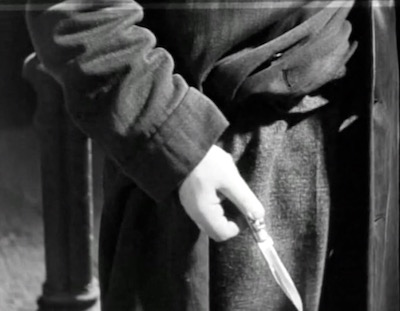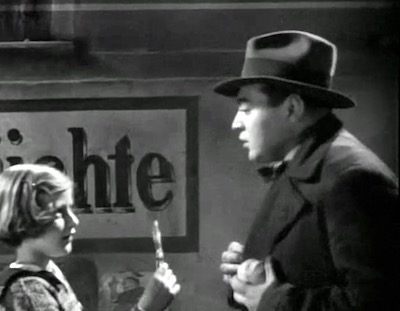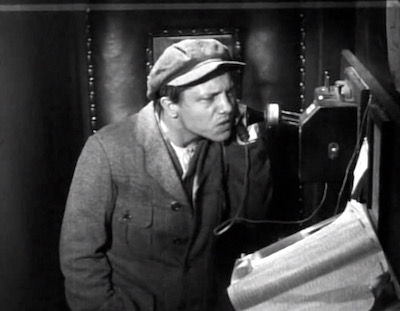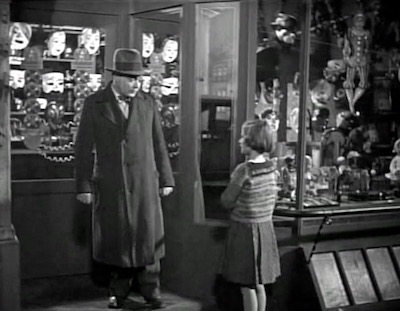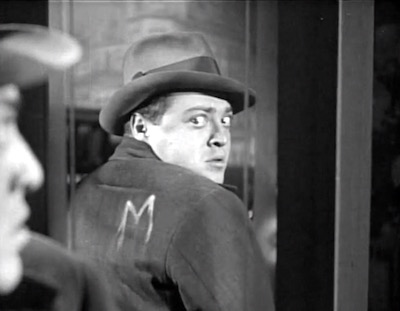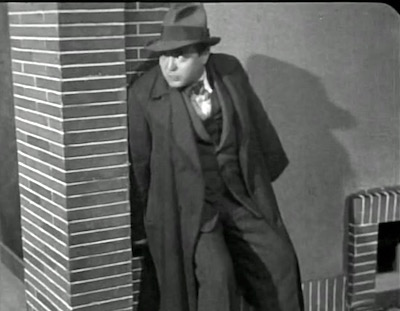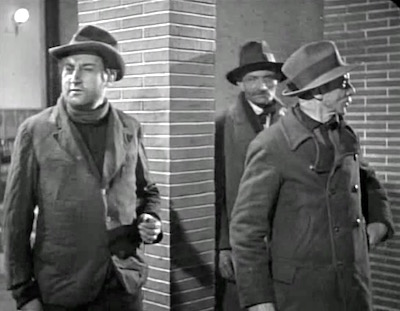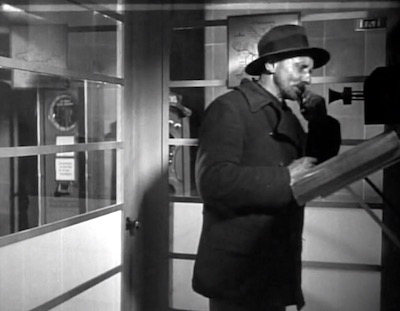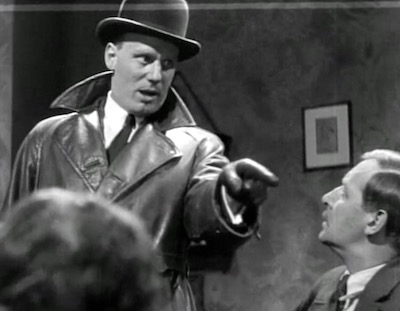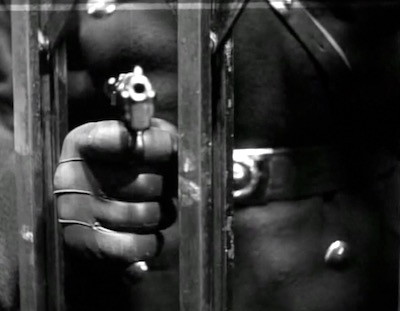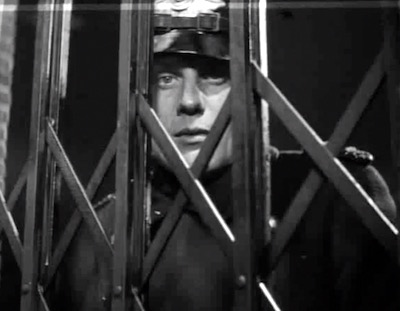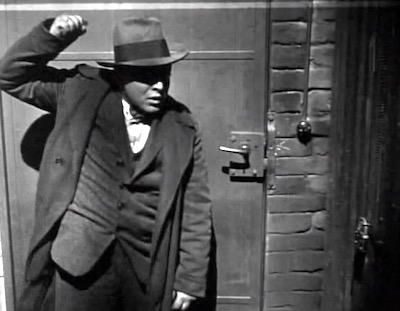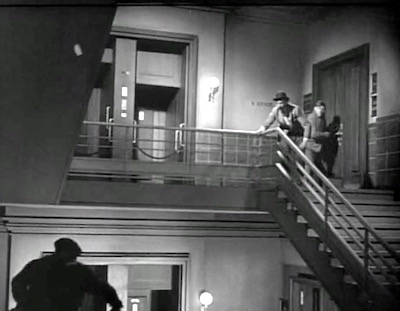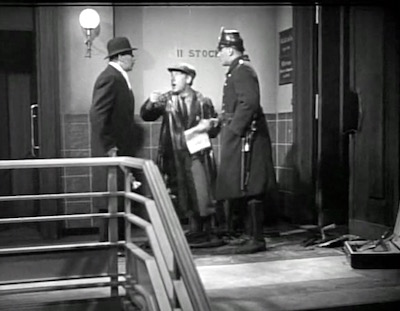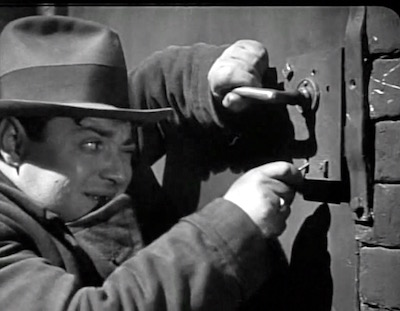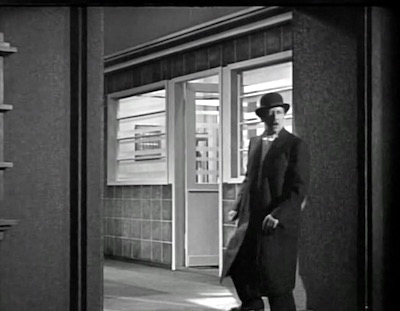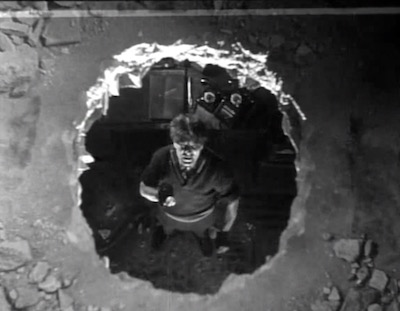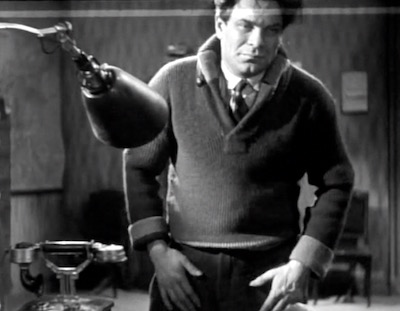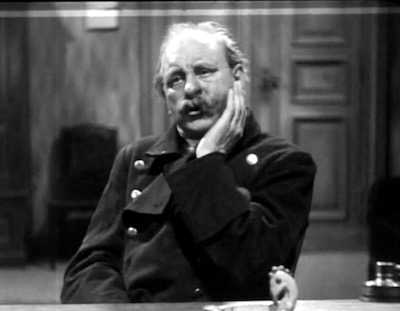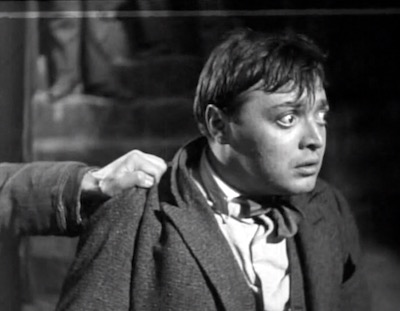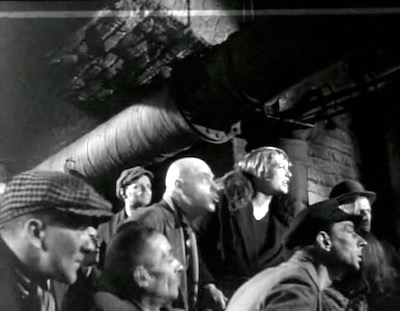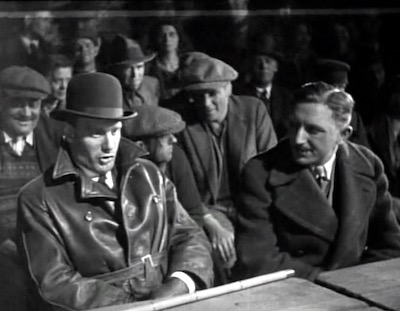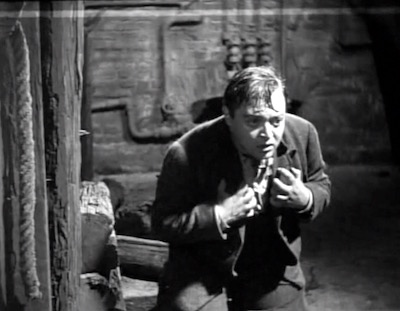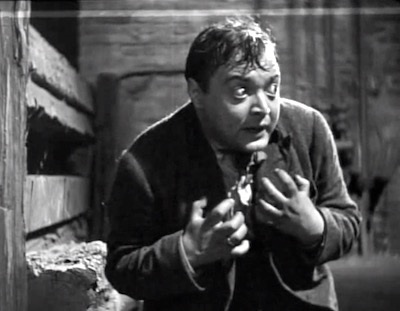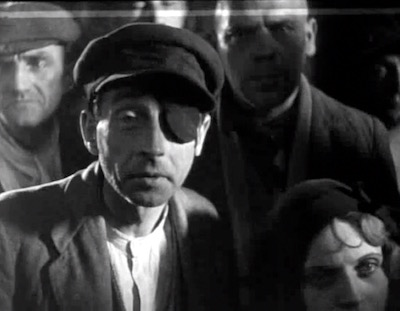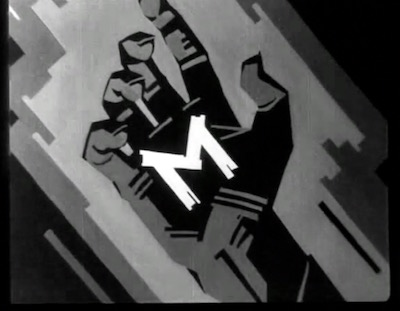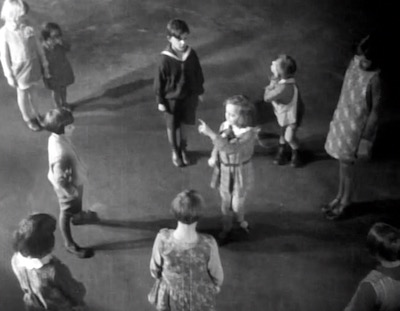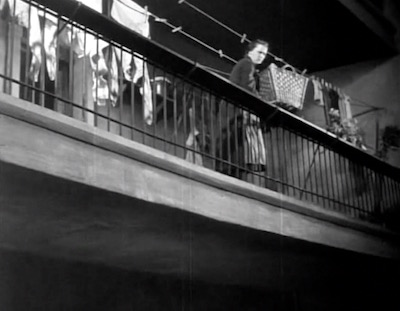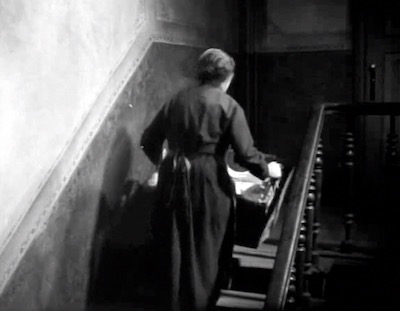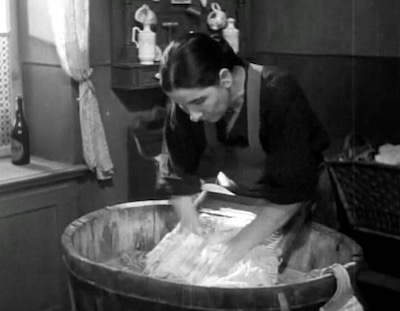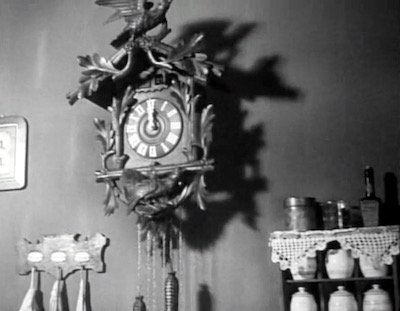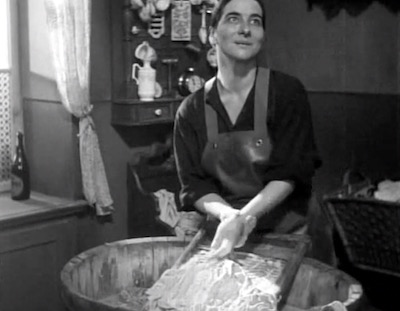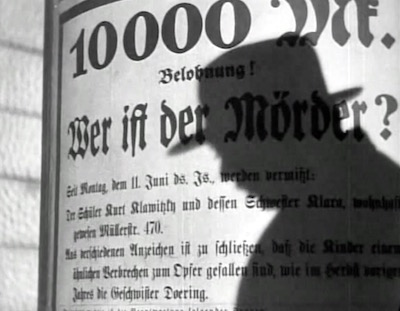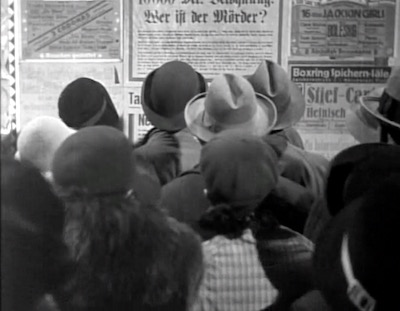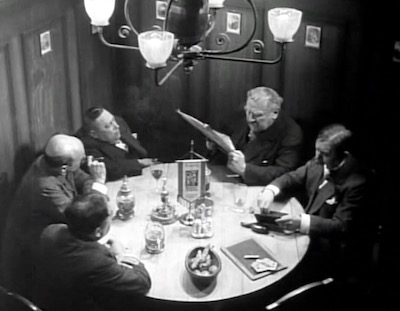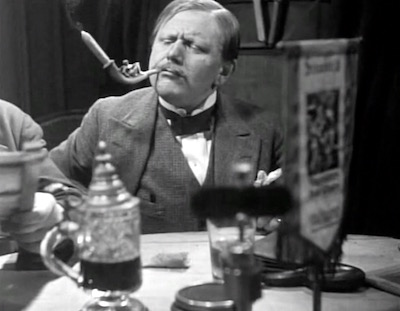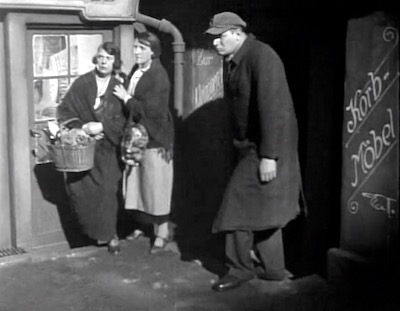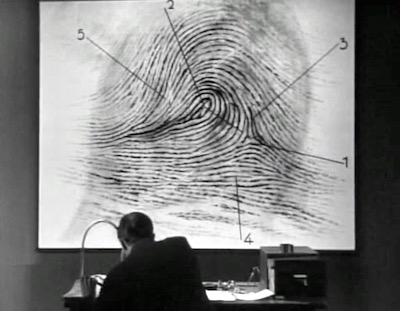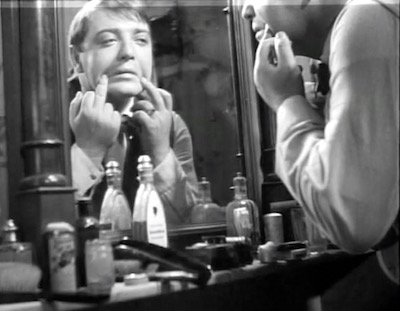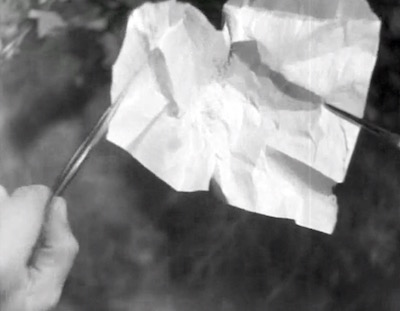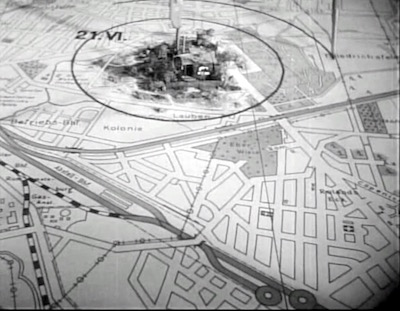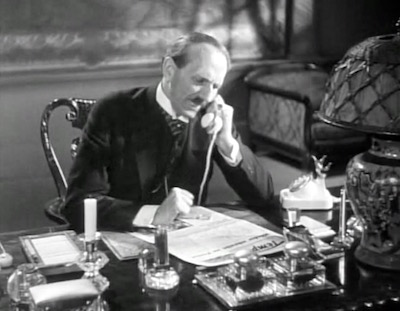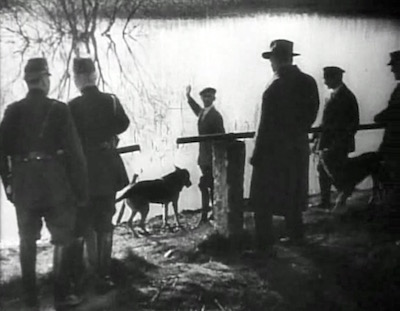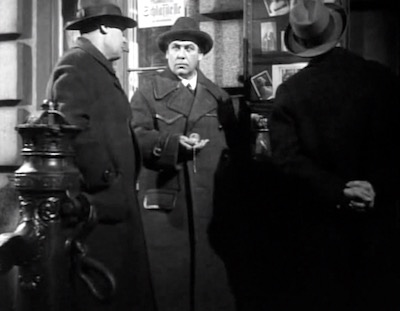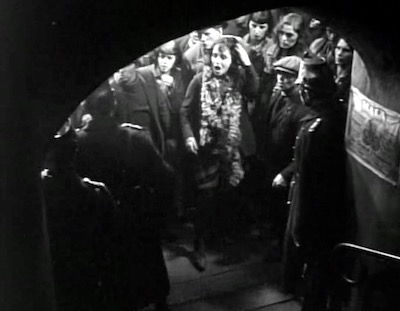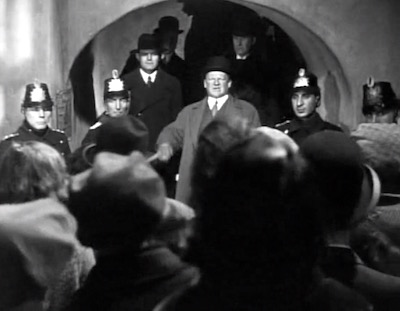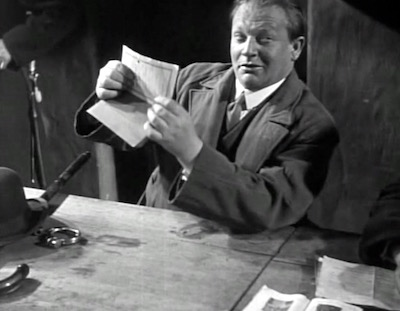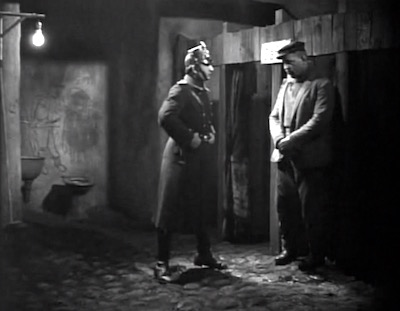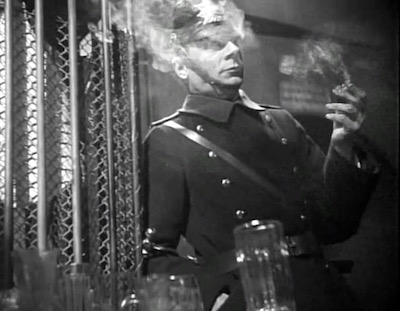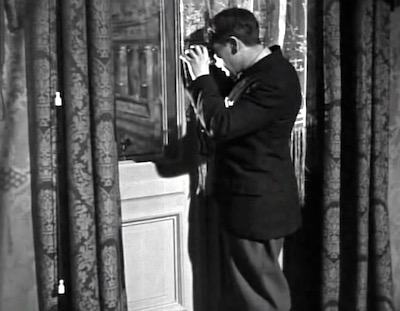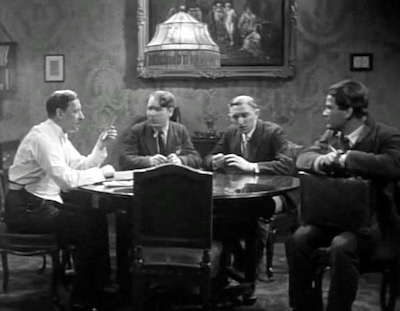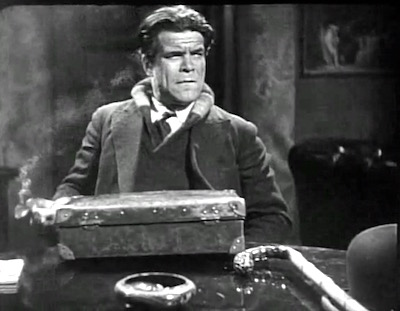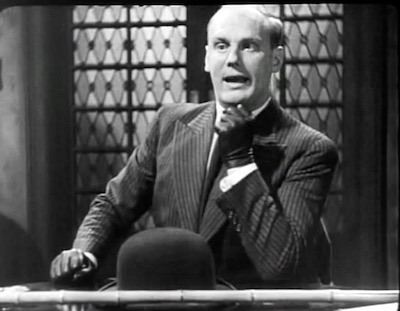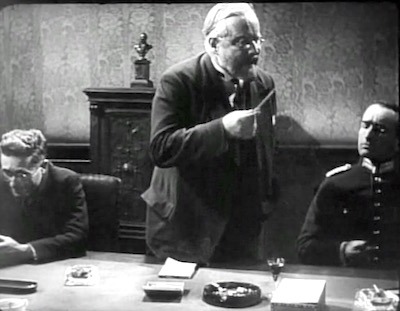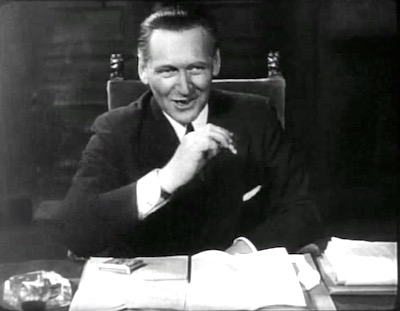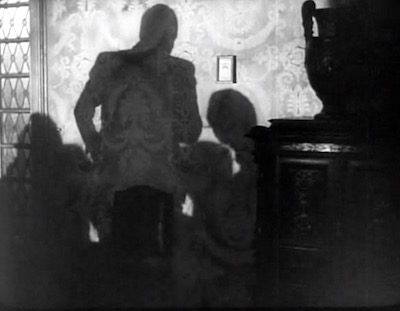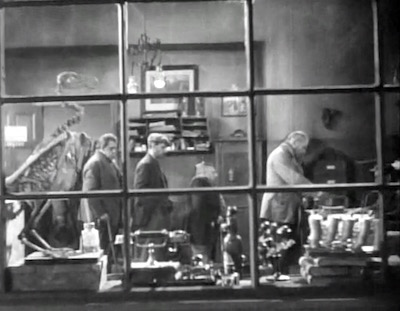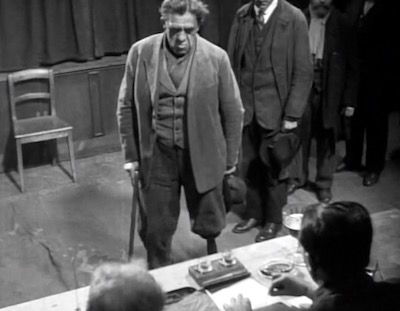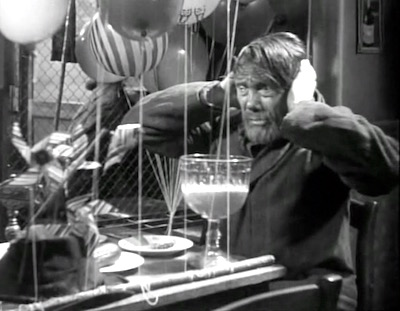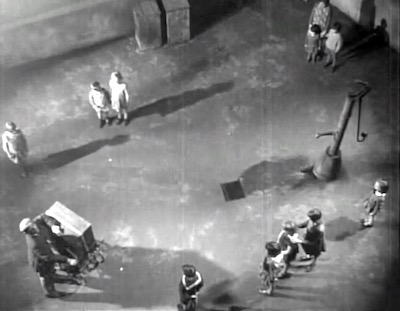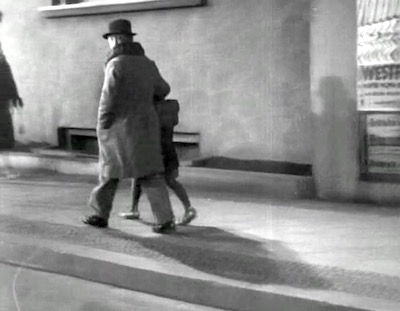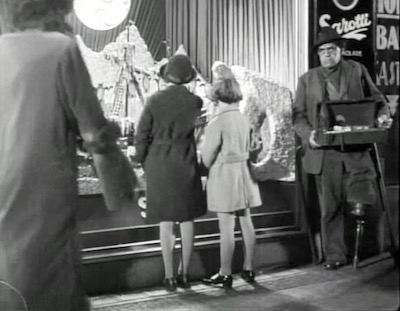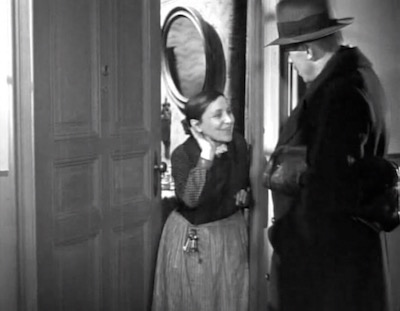
Directed by: Fritz Lang
Screenplay by: Fritz Lang, Thea von Harbou, Paul Falkenburg, Adolph Jansen, Karl Vash
Cast:
- Peter Lorre as Hans Beckert
- Otto Wernicke as Inspector Karl Lohmann
- Gustaf Gründgens as Der Schränker ("The Safecracker")
- Ellen Widmann as Mother Beckmann
- Inge Landgut as Elsie Beckmann
- Theodor Loos as Inspector Groeber
- Friedrich Gnaß as Franz, the burglar
- Fritz Odemar as Cheater
- Paul Kemp as Pickpocket with seven watches
- Theo Lingen as Bauernfänger
- Rudolf Blümner as Beckert's defender
- Georg John as Blind balloon-seller
- Franz Stein as Minister
- Ernst Stahl-Nachbaur as Police chief
- Gerhard Bienert as Criminal secretary
- Karl Platen as Damowitz, a night-watchman
- Rosa Valetti as Innkeeper
- Hertha von Walther as Prostitute
- Hanna Maron (uncredited) as Girl in circle at the beginning
- Heinrich Gotho as passerby who tells a kid the time
- Klaus Pohl as Witness / one-eyed man (uncredited)
Tagline: “A Child. A Tune. A Murderer.”
Not Rated
M (German: M — Eine Stadt sucht einen Mörder — "M — A city looks for a murderer") is a 1931 German drama-thriller film directed by Fritz Lang and starring Peter Lorre. It was written by Lang and his wife Thea von Harbou and was the director's first sound film.
Now a widely acknowledged classic, Lang himself considered M the finest work he ever did.
As the film begins, a group of children play an elimination game in the courtyard of an apartment building in Berlin, using a chant about a murderer of children. A woman sets the table for dinner, waiting for her daughter to come home from school. A wanted poster warns of a serial killer preying on children, while anxious parents wait outside a school.
Little Elsie Beckmann leaves school, bouncing a ball on her way home. She is approached by Hans Beckert, who is whistling "In the Hall of the Mountain King" by Edvard Grieg. He offers to buy her a balloon from a blind street-vendor. He walks and talks with her. Elsie's place at the dinner table remains empty. We see her ball rolling away across a patch of grass. Her balloon is lost in the telephone lines overhead.
In the wake of Elsie's death, Beckert sends an angry letter about his crimes to the newspapers, from which the police extract clues using then-new techniques of fingerprinting and handwriting analysis. Under mounting pressure from city leadership, the police work around the clock. Inspector Karl Lohmann instructs his men to intensify their search and to check the records of recently released psychiatric patients to look for those with a history of violence against children. They question known criminals, disrupting underworld business so badly that Der Schränker ("The Safecracker") calls a meeting of the city's crime bosses. They organize their own manhunt, using beggars to watch and guard the children.
The police find two clues corresponding to the killer's letter in Beckert's rented rooms. They wait there to arrest him.
Beckert sees a young girl in the reflection of a shop window, marking her instantly as his next victim. Following her, he's thwarted when she meets her mother. When he encounters another young girl, he succeeds in befriending her, but the blind beggar recognizes his whistling. The blind man tells one of his friends, who tails the killer, joined by other beggars he alerts along the way. Afraid of losing him, one young man chalks a large M (for Mörder — "murderer" in German) on his hand, pretends to trip and bumps into Beckert, marking the back of his clothing.
The beggars close in. When Beckert finally realizes he's being followed, he hides inside a large office building just before the workers leave for the evening. The beggars call Der Schränker, and a team of criminals arrives. They tie up and torture a guard for information. After capturing the remaining watchmen, they systematically search the building from coal cellar to attic, finally catching Beckert. When a watchman manages to trip the silent alarm, the crooks narrowly escape with their prisoner before police arrive. One, however, is captured and eventually tricked into revealing the purpose of the break-in, and where Beckert would be taken.
The criminals drag Beckert to an abandoned distillery to face a kangaroo court. He finds a large, silent crowd waiting for him. Beckert is given an ad-hoc "lawyer", who gamely musters a defense, but fails to win any sympathy from the "jury". Then, speaking in his own defense, Beckert delivers an impassioned monologue, saying that his urges compel him to commit murders that he later regrets — unlike those who are gathered to judge him, who break the law by choice. Beckert's lawyer points out that the presiding "judge" is himself wanted on three counts of totschlag (a form of homicide under German law). Beckert pleads to be handed over to the police, asking, "Who knows what it's like to be me?" Just as the enraged mob is about to kill him, police arrive to arrest both Beckert and the criminals.
As the real trial passes, five judges prepare to pass judgment on Beckert. Before the sentence is announced, Lang shows us three of the victims' mothers crying. Elsie's mother says no sentence would bring back the dead children, and "One has to keep closer watch over the children".
Impact
M was Lorre's first major starring role, and it boosted his career tremendously, even though he was typecast as a villain for years after in films such as Mad Love and the film adaptation of Crime and Punishment. Before M, Lorre was mostly a comedic actor. After fleeing from the Nazis, he landed a major role in Alfred Hitchcock's first version of The Man Who Knew Too Much, picking up English along the way.
Otto Wernicke (Inspector Karl Lohmann) made his breakthrough with M after playing many small roles in silent films for more than a decade. After his part in M, he found himself in great demand, and eventually returned to the role of Karl Lohmann in The Testament of Doctor Mabuse. He played supporting roles for the rest of his career.
Gustaf Gründgens (Der Schränker — "The Safecracker") won acclaim for his role in the film and established a successful career for himself under Nazi rule, ultimately becoming director of the Staatliches Schauspielhaus (National Dramatic Theatre).


